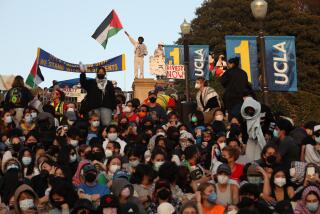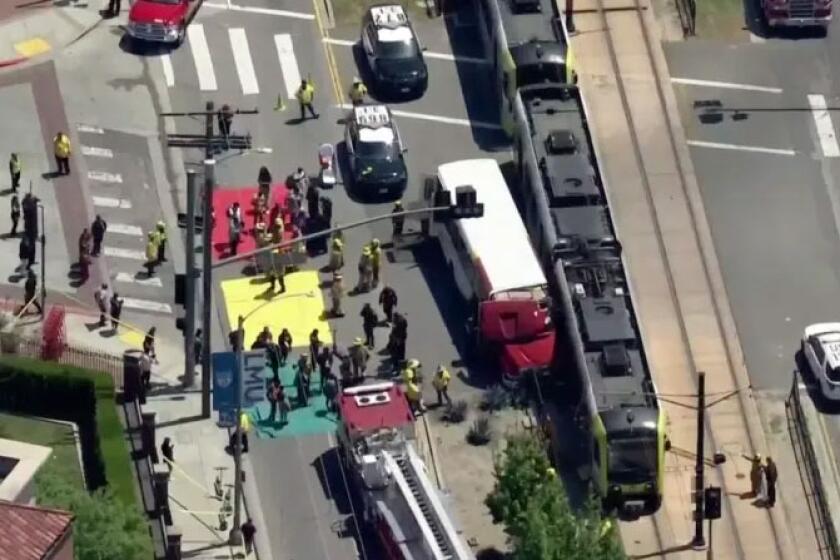RTD Delays Collection of Metro Rail Tax on Business
The Southern California Rapid Transit District board Thursday agreed to postpone collecting a controversial special Metro Rail tax on downtown business owners until 1992.
The property owners had complained bitterly about taxes that were to be levied to help pay for the first 4.4-mile leg of the subway running from Union Station to Wilshire Boulevard and Alvarado Street.
Under the plan announced two weeks ago and given final approval Thursday, collection of the taxes will be deferred until 1992, when the subway is scheduled to start running. The $20 million that will have already been collected, however, will not be refunded, said Joe Scatchard, RTD treasurer. The tax, levied on the theory that business will improve for merchants near Metro Rail station stops, did not apply to residential or charitable properties.
In another Metro Rail development, the RTD board gave final approval to shifting the proposed passenger terminal beneath Union Station and moving a section of the tunnel 200 to 300 feet in order to avoid a pocket of toxic soil in the path of the subway. RTD only recently acknowledged that the hazardous deposits lay in the path of construction. The route change is expected to cost $1.3 million, but it could have cost up to $20 million to remove or treat the soil, officials said.
The construction firms of Tutor-Saliba Properties in Sylmar and S. J. Groves & Sons Co. of Minneapolis were selected Thursday to build the largest single portion of the subway project. For their $61.5-million bid, the companies will dig two adjacent 5,900-foot-long tunnels from Union Station to 5th and Hill streets.
The board also gave final approval to General Manager John Dyer’s six-month “action plan” developed to correct a series of well-publicized RTD problems in management, driver safety and driver absenteeism. Dyer announced Thursday that the RTD and leaders of the drivers’ union will meet Saturday to establish a committee to address the drivers’ high rates of absenteeism. The overall plan approved Thursday will cost $1.3 million but also will save that much in efficiency improvements and reduced costs in travel, accidents, and worker time lost due to drug-related problems, Dyer said.
More to Read
Start your day right
Sign up for Essential California for news, features and recommendations from the L.A. Times and beyond in your inbox six days a week.
You may occasionally receive promotional content from the Los Angeles Times.






